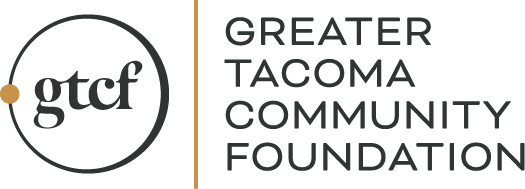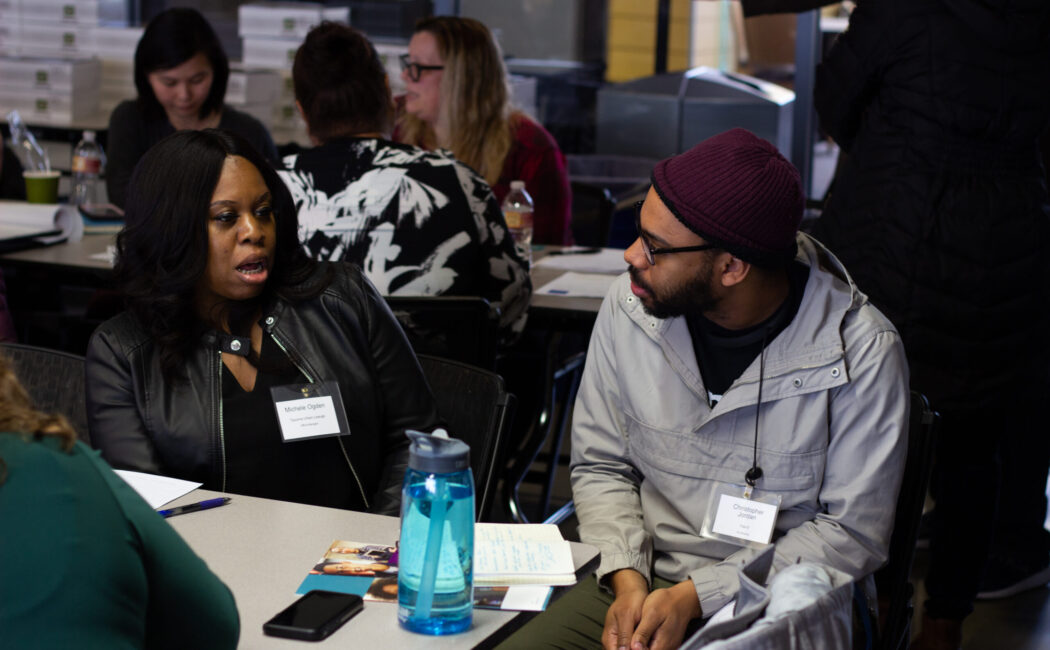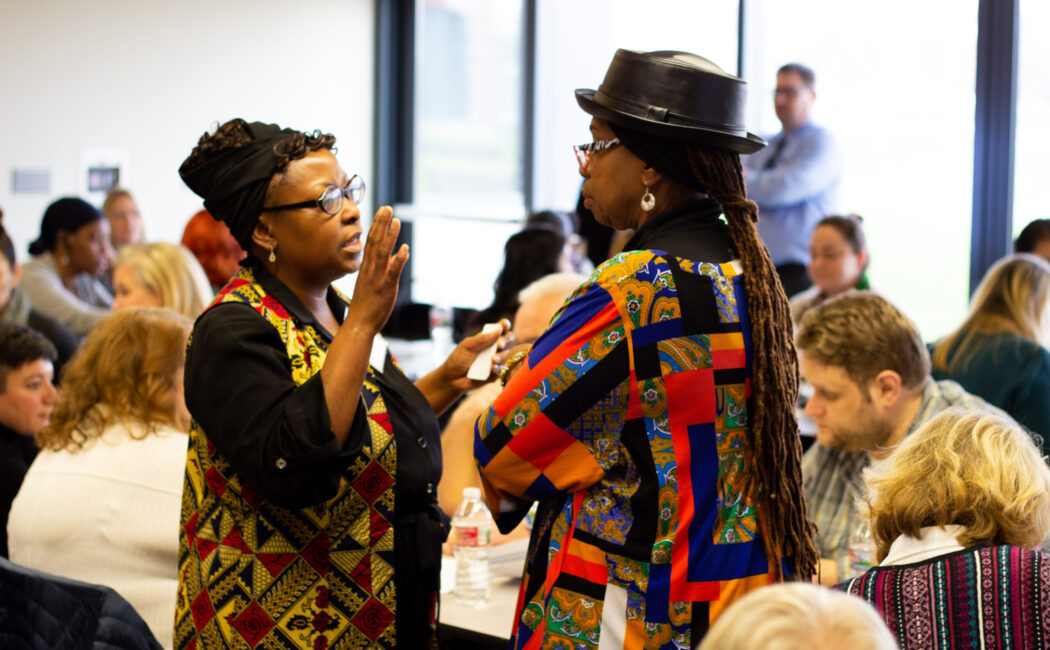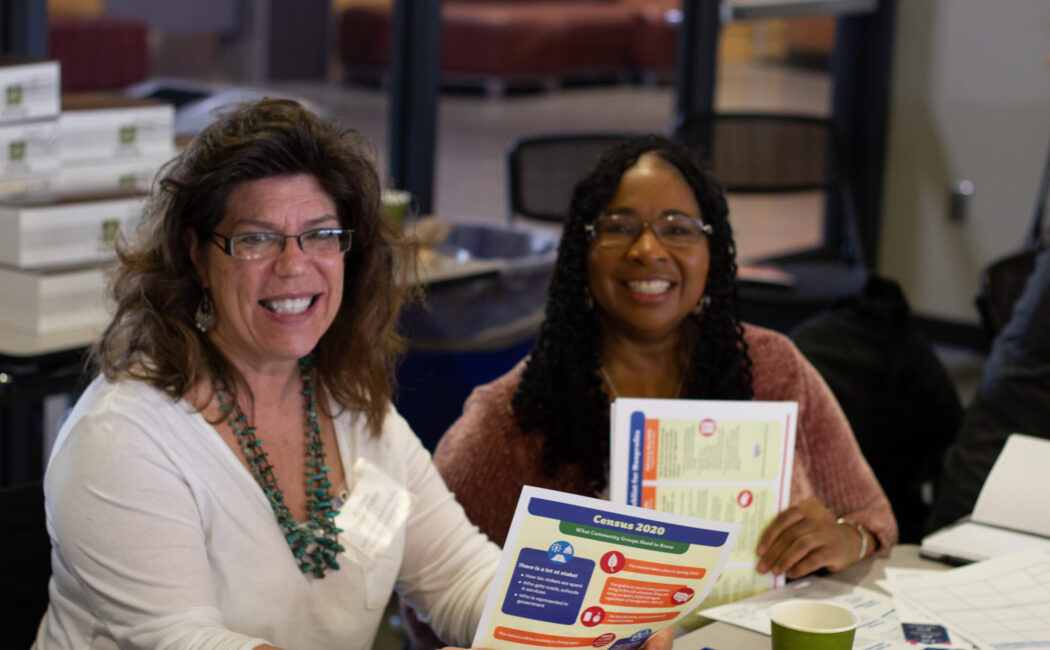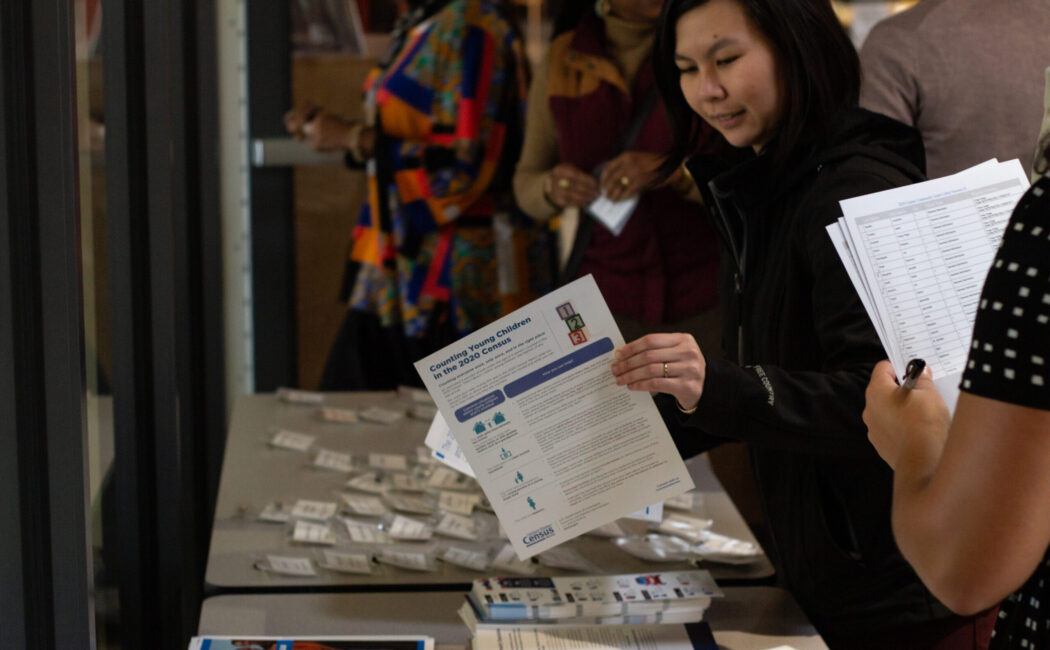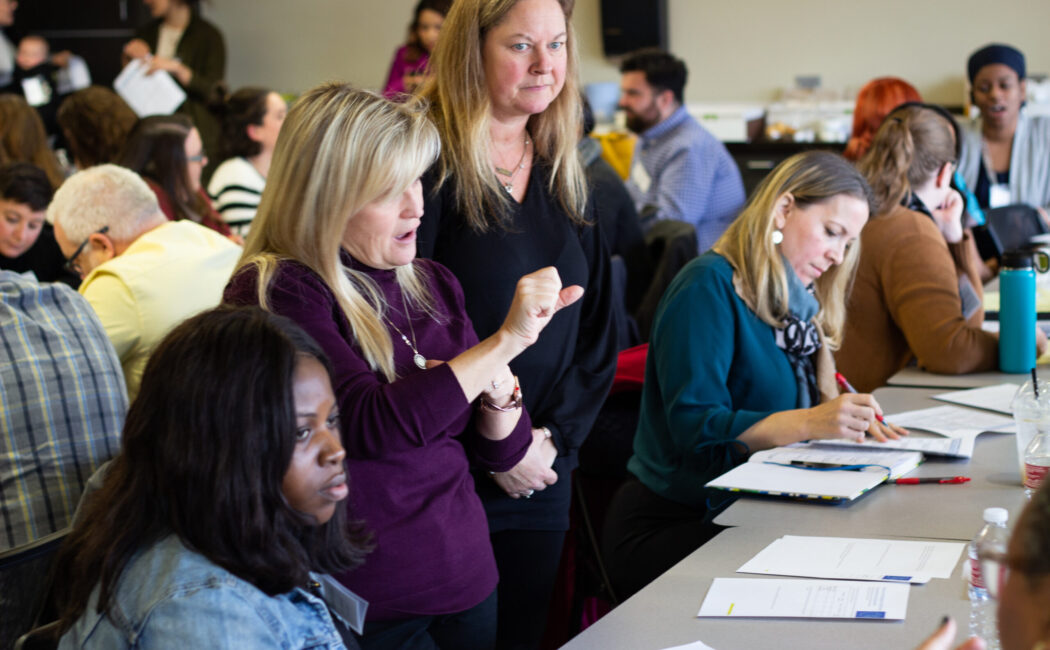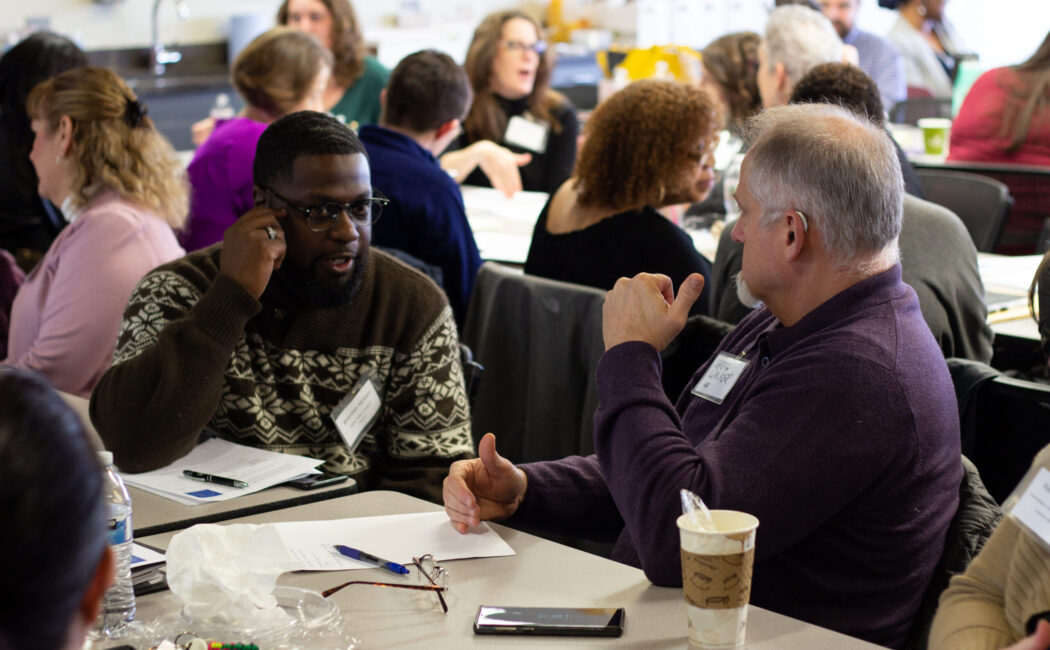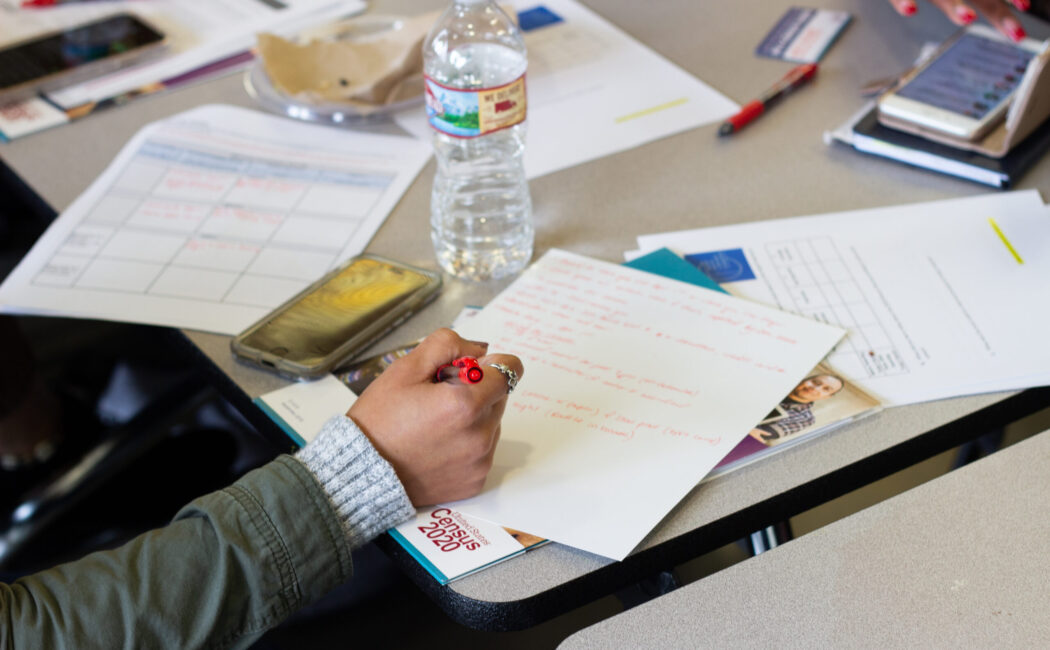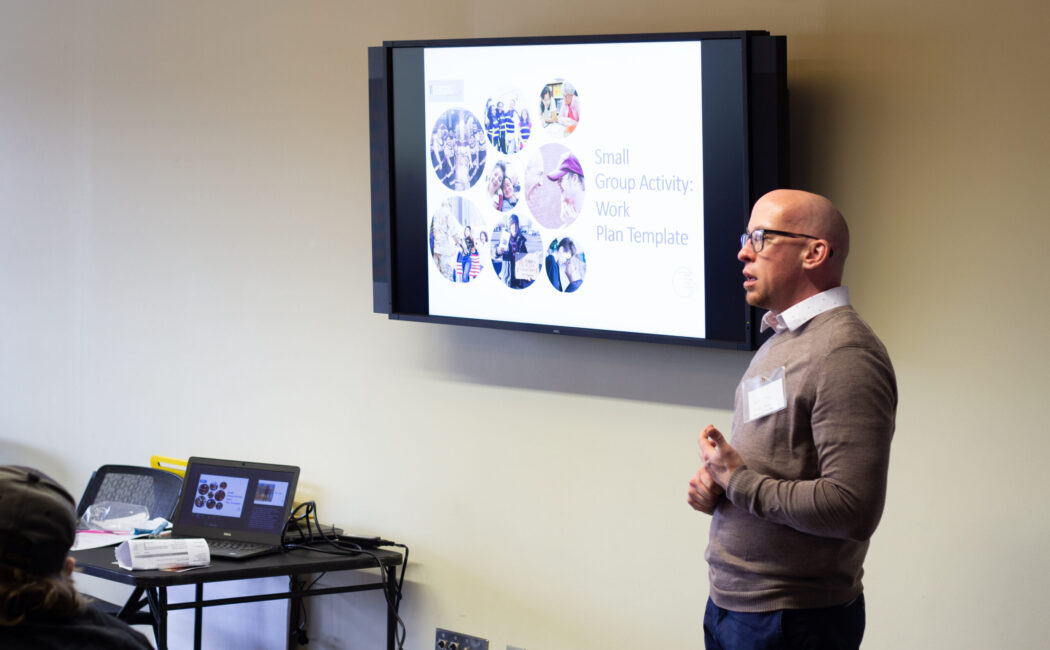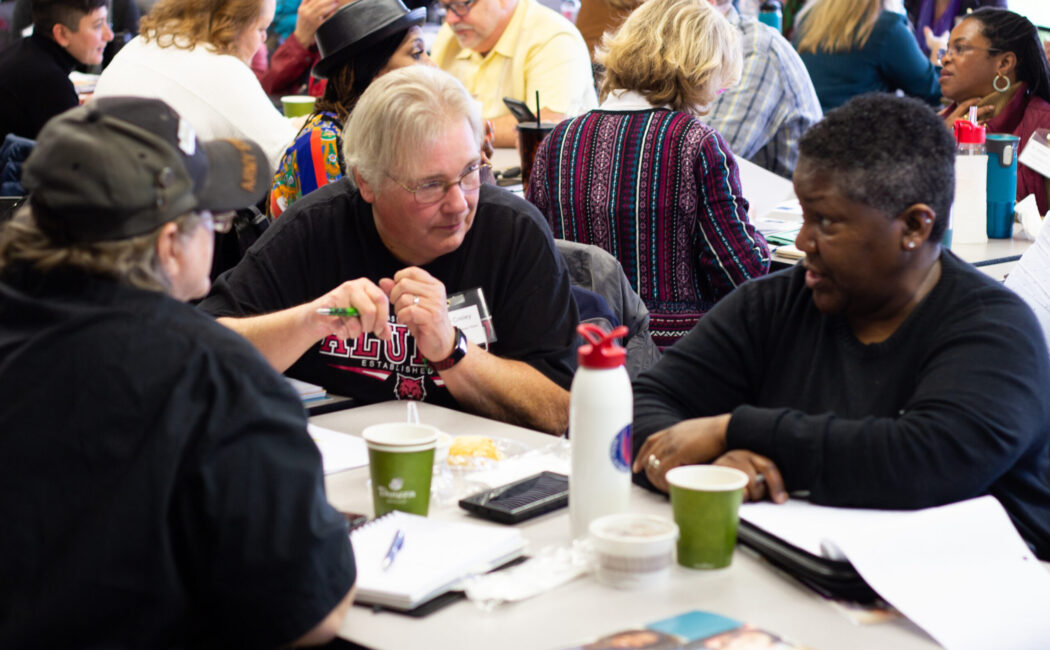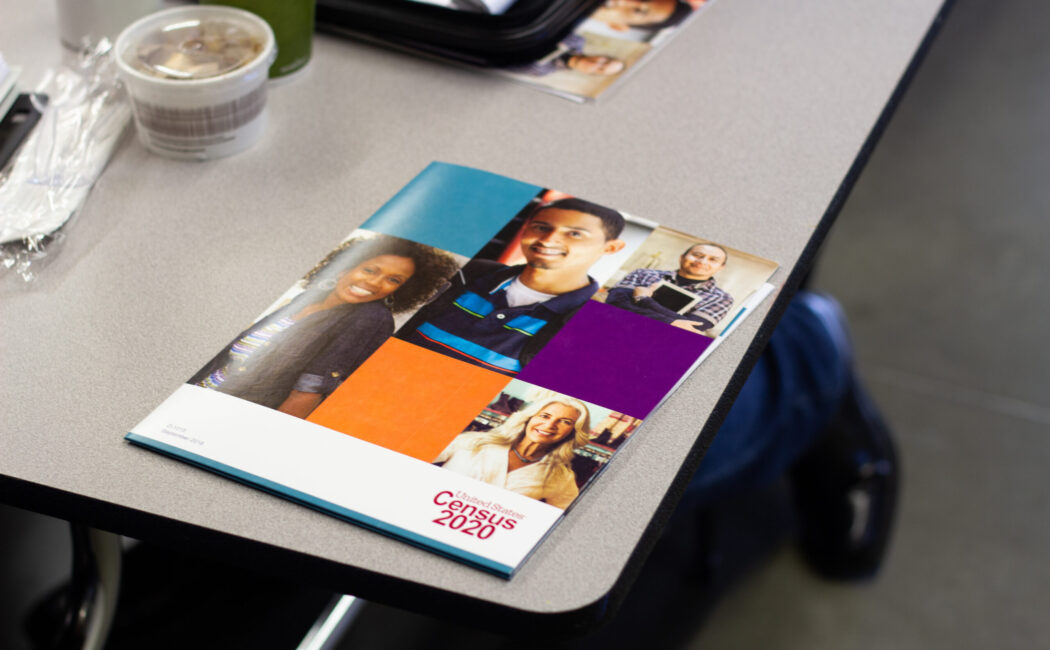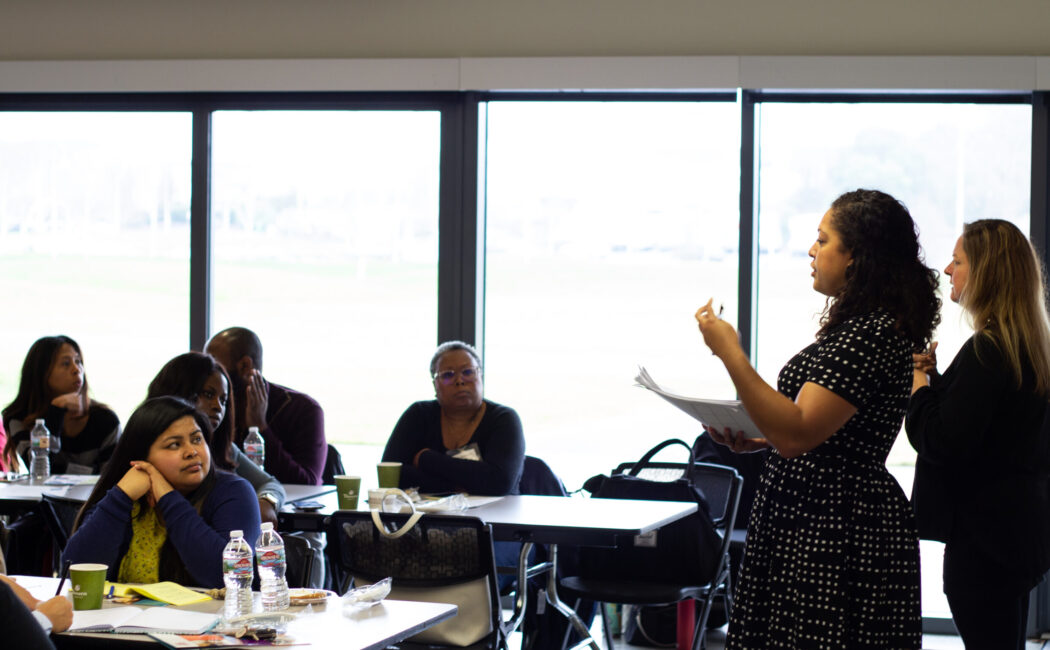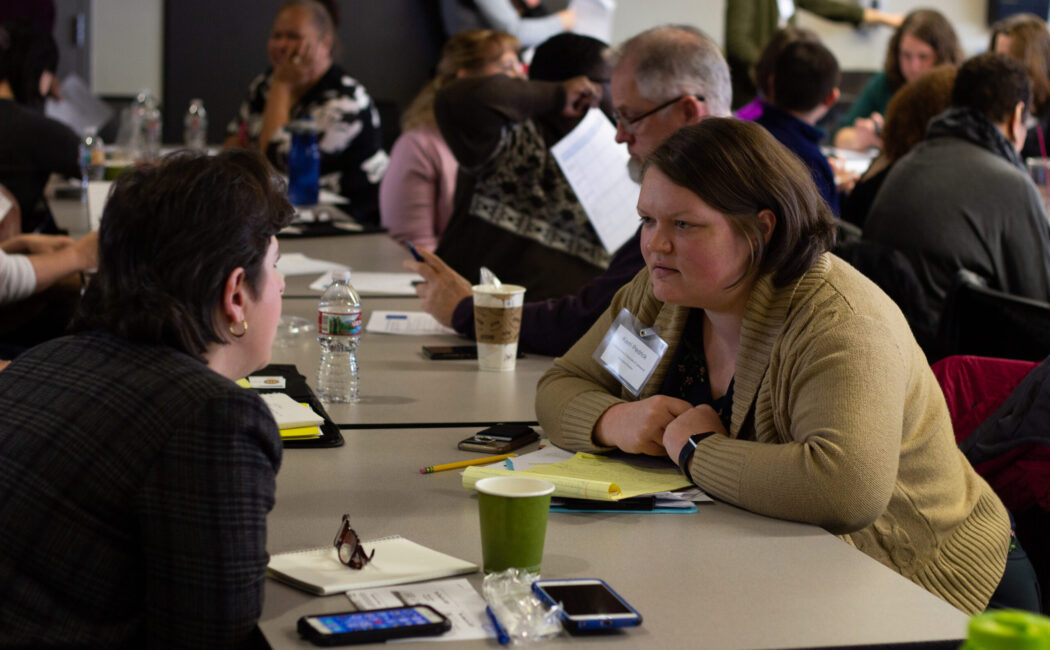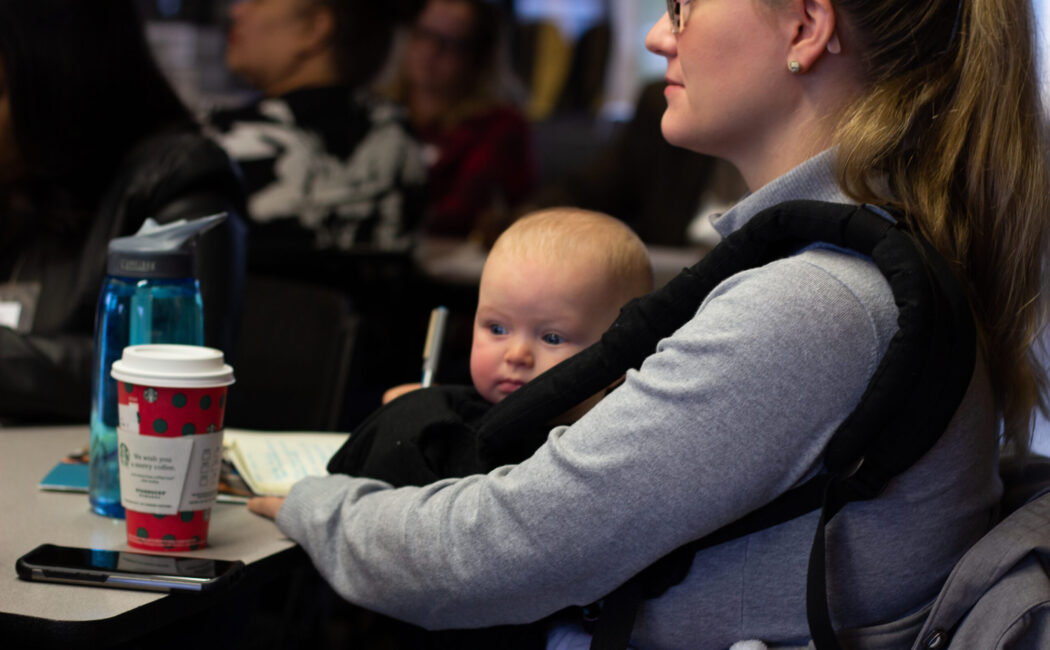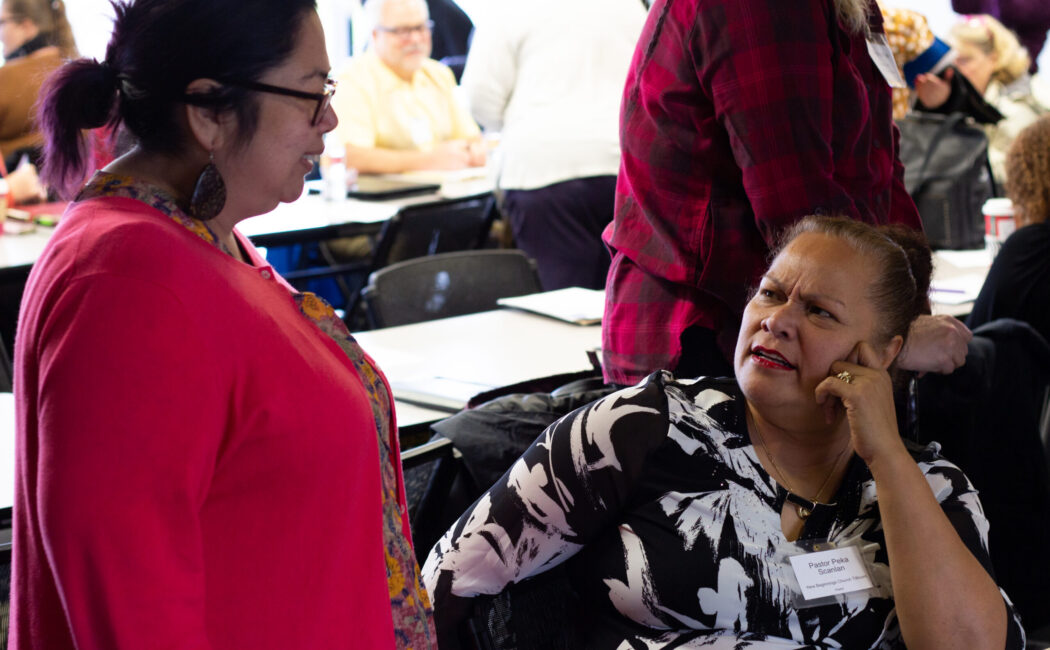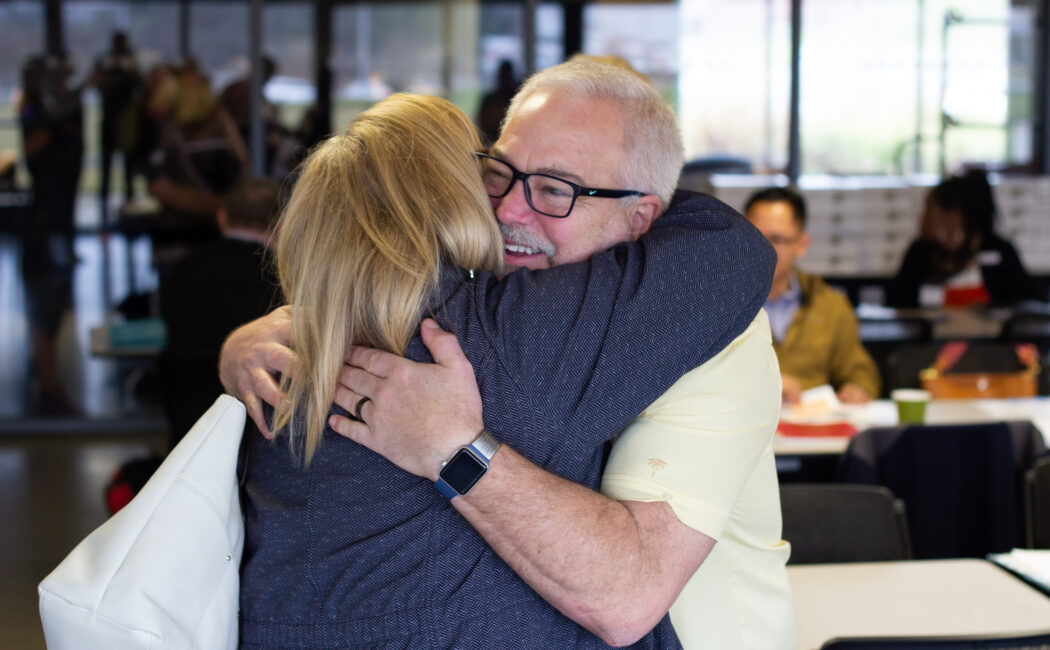
Community
12
2019
2020 Census Outreach Depends On Community Connections
For the past year, Chris Jordan and his team at Fab-5 have been inviting youth, neighbors, and elders of the Tacoma Hilltop community to shape the development of new affordable housing units, and new community, commercial, and retail space along the Martin Luther King, Jr. Way corridor. Chris Jordan is co-Director of Fab-5, a nonprofit that advocates with and supports local youth to gather, connect, and create positive futures for themselves and their community.
In the coming months, Chris plans to incorporate conversations and information about 2020 Census into upcoming sessions of these #DESIGNTHEHILL gatherings, “The design labs we’ll do around Hilltop and its future with this Census outreach will provide an opportunity to think about the long-term future of the neighborhood in very concrete ways.”
“These organizations are experts at reaching their networks and so our goal is to support them in doing more of what they already do incredibly well.”
Fab-5 is one of 39 organizations receiving funding for Census outreach through GTCF, thanks to a grant from the State of Washington Office of Financial Management. As part of the grants, more than 90 leaders representing tribes local governments, organizations, associations, coalitions, and collaborative networks gathered together as a cohort on December 5, 2019 to deepen connections and share ideas for Census outreach and engagement in hard-to-count communities.
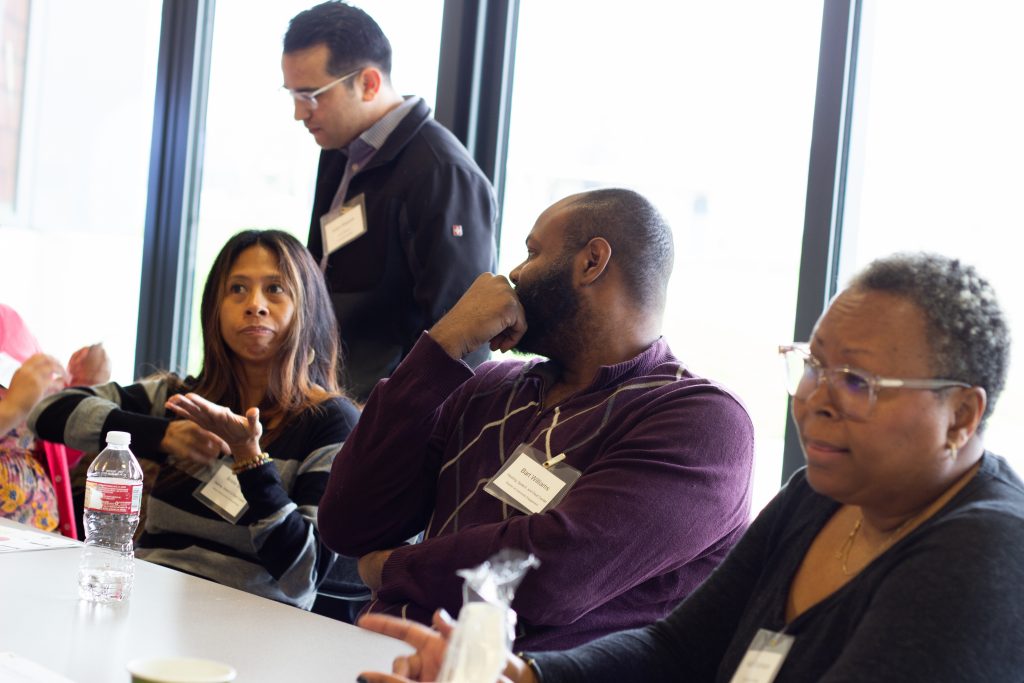
Ariele Belo of Hearing Speech & Deaf Center was another grant recipient at the event. Her organization’s outreach strategy includes developing an ASL video that will highlight the importance of the Census, show what the form looks like, and explain how to fill it out. Belo says that ASL is the primary language for many of the community members they connect with regularly, so written English is often difficult for them to understand, “We meet with a lot of deaf people who say that when they see a bunch of printed materials come in, they often throw it away because it’s difficult to read and understand. We don’t want them to toss it, so we want to educate them about what it is before it gets there.”
Another grant recipient was the Cowlitz Indian Tribe. They operate multiple offices along the I-5 corridor where they administer a number of health and human services programs for their own members, as well as members of other American Indian and Alaska Native communities. The Tribe plans to help spread the word about the 2020 Census by setting up booths at Pow-Wows, holiday art fairs, and cultural events hosted by them and other tribes or tribal organizations. Tribal employees in various departments and programs are being briefed on the Census so that they can include outreach and education in their ongoing work. Posters and information sheets are being provided in all the Tribal offices, and the Tribe is working with their payroll department to have a Census information sheet included with checks that go out to all the Tribal employees as well.
The 2020 Census is a once-in-a-decade opportunity to inform data that directly affects everyone in Pierce County. Census data guides how more than $800 billion a year in federal funding is distributed, helping to create jobs, provide housing and build schools, roads and hospitals. An accurate count is critical to Pierce County’s ability to access public and private resources and to ensure residents have adequate government representation.
“The strategies that will be necessary to reach our hardest-to-count people are also the strategies that are necessary to better engage our community in shaping its future.“
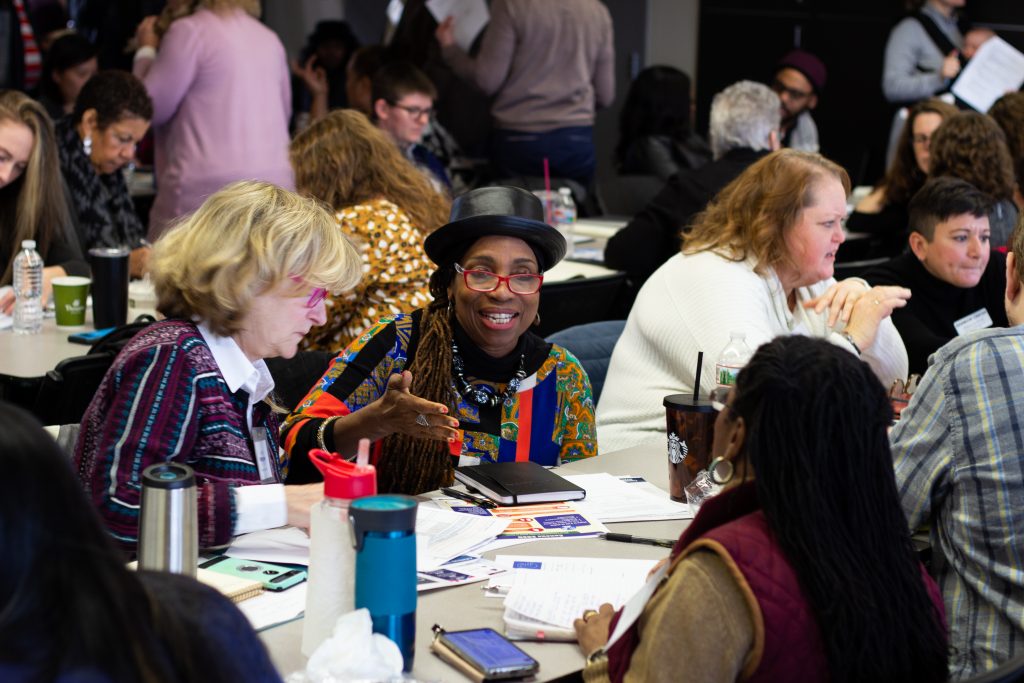
Historically, important communities including immigrants, people of color, and young children have been undercounted in the census. The 2020 Census Community Grants process was designed to elevate, center, and enhance current and new relationships among hard-to-count communities.
“By funding organizations with trusted relationships to do more of what they’re already doing, they can be the most creative and effective in reaching their networks without taking on extra work that makes it harder for them to achieve their mission. Community-based organizations know best the activities and strategies that reach the members of their communities. These organizations are experts at reaching their networks and so our goal is to support them in doing more of what they already do incredibly well, ” said Seth Kirby, GTCF’s VP of Community Impact.
The gathering was the first in a series of three collaborative sessions for recipients of GTCF’s 2020 Census Community Grants. Over the next several months, the census cohort will continue to meet, sharing out their ideas and strategies. Seth Kirby said, “Our philosophy is that we are stronger together, so we wanted to get everyone together right away so that leaders are connected with other organizations doing work. This network has already become a place to share ideas and solutions that meet the unique concerns of hard-to-count communities.”
For Fab-5’s Chris Jordan, the Census work isn’t a new project; it’s another opportunity to deepen relationships and continue his organization’s mission, “The strategies that will be necessary to reach our hardest-to-count people are also the strategies that are necessary to better engage our community in shaping its future. I’m excited about the opportunity to strengthen our partnerships and improve the civic infrastructure of our city to better serve our young people and their families.”
Find out more about GTCFs Census Community Grants here.
